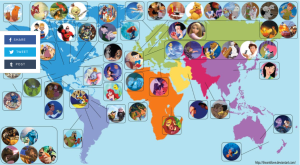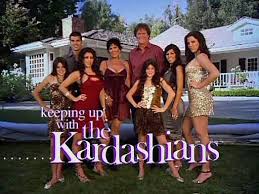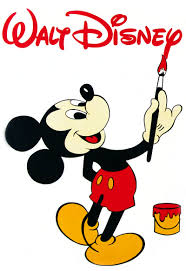Television Globalizes
Films might be one great representation of how globalization is influenced, but there is another media form that is very similar to film that has an even greater impact: television. From reality television shows to worldwide broadcasts of political figures, television plays an important role in influencing globalization and how various cultures view each other.
When you think of reality television “hits”, you probably think of the Kardashian family, the infamous bachelors and bachelorettes who have competed for one heart, or those real housewives thirsting for attention. You might think these are huge successes, but in reality, other countries like Britain have scored big through creating reality TV successes. British shows have even started in Britain and are replicated in foreign countries to become a hit as well.
Reality TV has become a huge success all over the world, bringing the same stories and relationships to homes all over the world, further connecting everyone through global and national ties. These videos prove that everyone is watching reality TV, further linking us in many ways with people from all over the world.
Another form of television that is seen from all over the world is political broadcasts, specifically the U.S. Presidential Debates of 2012. Of course, this series of events were viewed primarily by Americans, but it made a buzz throughout the world. Known as the most-tweeted event in political history, President Obama and Governor Romney stirred up a lot of buzz due to their banter and subtle jabs. Watch the video below to get an idea of just how intense these debates got.
People from all over the world commented on the performances of both candidates and participated in the tweets and various forms of social media. This further proves the role that television plays in globalization.
Both television and film play an important role in connecting various cultures and regions through either good or bad lens. People from all over the world enjoy watching any kind of television, and the list goes way beyond reality TV and presidential debates. These are just a few examples of how the world views television and how it links us to each other.
Sources:
- Entertainers to the World, The Economist
- Understanding the Global Popularity of Television Formats
- Commission on Presidential Debates, (Transcript)
Disney and Its Global Era
Wednesday March 25, 2015
Films that enhance globalization do not only include actors and sets; animated films also partake in spreading globalization in countless ways. And which films better show this than Disney productions? The Disney brand has become a globalized product that has expanded all over the world, and will continue to link various cultures and countries together through storytelling and pure entertainment. In my last post, I discussed the negative aspect of globalization regarding films such as “The Interview”. However, there are many ways films can positively affect globalizations. For example, each of Disney’s movies embrace various cultures, religions and lifestyles, that initially are created for children to enjoy, but spread a larger message to all who watch.
In many of Disney’s animated movies, different cultures and regions are represented. In the video seen below, you’ll see how they accomplished this. You’ll also see the countless products that were distributed due to these films and the globalized brand that it elicited.
With 11 theme parks, 2 water parks, a global cruise line, and worldwide guided tours, it is safe to say that Disney has created a global empire that offers the same products to the entire world, based on their abilities to transform digital technologies into profit-making platforms.
Although Disney’s main goals for its corporation is to aim toward globalization, there are some critics who believe their films are not properly representing some cultures. To this, Disney would say that their films promote global acceptance to all who watch them, while encouraging diversity from a young age.

Through “Disneyfication” of the world, Disney films increase people’s shared information and ideas, resulting in connections between various parts of the globe. This is Disney’s impact, and it will continue with the trend as its brand produces more globalized items that will promote further connections.
Sources:
- How Disney Magic and the Corporate Media Shape Youth Identity in the Digital Age
- The Most Powerful Mouse in the World: The Globalization of the Disney Brand
Globalized Films
Wednesday March 18, 2015
Do you remember the last movie you watched? Try to remember the director and where he or she is from. Chances are it is not in the United States. Majority of the world’s filmmakers back in the day were mostly based in Hollywood. Today, they are non-US based directors who bring diverse and ideological projects to the big screen—and are making the big bucks while doing it.
While these foreign movies are coming to the US, movies filmed in Hollywood and New York are being shown in countries all over the world. With people already questioning whether American cinema can survive as an authentic art form, Hollywood should be worried. When we think of some of the movies that are made here, do we really want our international counterparts viewing us in a negative light?
Take a recent conflict in film, The Interview, a highly controversial film centered around the assassination of North Korean leader Kim Jong-un. North Koreans were less than thrilled with the way they were depicted, as shown in this video.
There were even threats toward American theaters that were screening the film, which created fear among many.
Globalization is a way for people all over the world to exchange world views of other cultures. However, when films such as these occur, this exchange of information through media, products, and ideas is seen more negatively.
Films do not always contribute to a negative outlook on globalization. “Slumdog Millionaire“, the rags-to-riches story of a young Indian boy, exposes a new culture to viewers that plays a role in globalization and had large success in the States.
Film as a medium has accelerated globalization and the exchange of worldviews in both advantageous and disadvantageous ways. It will be interesting to see how the next era of film will globalize our world.
Sources:






Tucker Genal March 23, 2015
Your post really got me thinking about how much of an impact films actually have on globalization. I also agree that the medium of film has begun to spread past Hollywood and has become a global tool, that different cultures may use to connect with one another. The last movie I saw was ‘Captain Phillips’ and I looked up who the director was and where he/she is from and surely enough the Director, Paul Greengrass, is not from the US but from the UK. ‘The Interview’, was a really good example that shows the negative impact a film can have. The movie was a form of entertainment for some, but for North Korea is serves as a negative image on their nation. I enjoyed reading your post and am now excited to see what impacts the film industry will have on globalization in the future.
LikeLike
Sergio Lopez: March 24, 2015
First I want to say that you did an amazing job with the examples you used and the topic of films influence in other parts of the world. I found it very interesting when you introduced the idea to your reader of how films created by non American based producers add diversity to the film industry. I personally feel this embodies the idea of globalization because of different ideas through the lens of different people can be shown in a theater of another country. The example of the interview as a negative impact of films in other part of the country was a good example because I have seen the movie and in some ways it did cross the line. However, you also included the positive view of a film such as slumdog billionaire to give the other perspective and I though that was really important. Overall, I think you did a good job and think you choose a great topic if anything to improve on your post would be the images. I would suggest to try and experiment to put make them a bit larger or in a different place to make them more appealing to the audience.
LikeLike
Mallory Fitzgerald: March 24th, 2015
I found this blog post to be really interesting because a lot of people forget that Hollywood movies are viewed around the world by people from countless different cultures. Because of this, not only do we have to be careful about how we portray people from other countries, we also have to be careful about how we portray ourselves as Americans. You mentioned how Koreans were offended by how they were portrayed in The Interview but what would also be interesting to study is how foreigners who view Hollywood movies view Americans because of how they are depicted. Do Hollywood movies give an accurate depiction of American life? I feel like just as The Interview exaggerated stereotypes of Koreans, American stereotypes are exaggerated in movies as well. Because movies are so globalized, I wonder how this affects other countries view of American people.
LikeLike
Mallory Fitzgerald: March 31st, 2015, Second Post
Like most kids of the Disney generation, I grew up watching their animated movies. As a child, when I watched these movies that present characters from all over the world, I didn’t realize how it was teaching me about different cultures. Like you point out, Disney does a great job at globalizing cultures to kids around the world. It is interesting looking back now from an adult perspective at how these representations are criticized for being inaccurate. I’m happy you included this side in your blog post because Disney has such a great influence around the world, most people do not stop to question its authenticity.
LikeLike
Mallory Fitzgerald: April 7 2015
I really enjoyed your blog post about how television plays a role in globalization. Reality television was a great example to use for this because shows like Keeping Up with the Kardashians globalize American family life to people around the world. Obviously the Kardashians are not an accurate portrayal of the majority of American families, but it still gives a glimpse into what life is like in America. You also made a really good point by bringing in the political side of television globalization. The United States is a major political force and it is important to remember that we are not the only people watching our politicians on TV. The decisions these politicians make affect the world, so because of television people everywhere can keep tabs on what they are supporting and the actions they are taking.
LikeLike
Tucker Genal: April 7, 2015
This was another really good post and it clearly shows how television can have a globalizing influence. Splitting it up into ‘’reality TV’’ and “political broadcasting” gives a good idea of the countless ways television as a whole can be used. I really enjoyed watching your video especially “the best zingers of the 2nd presidential debate”. It was interesting to see how global that event became especially since it’s primarily an American event. This was a very good post showing televisions potential for connecting us all to one another, on a global scale.
LikeLike